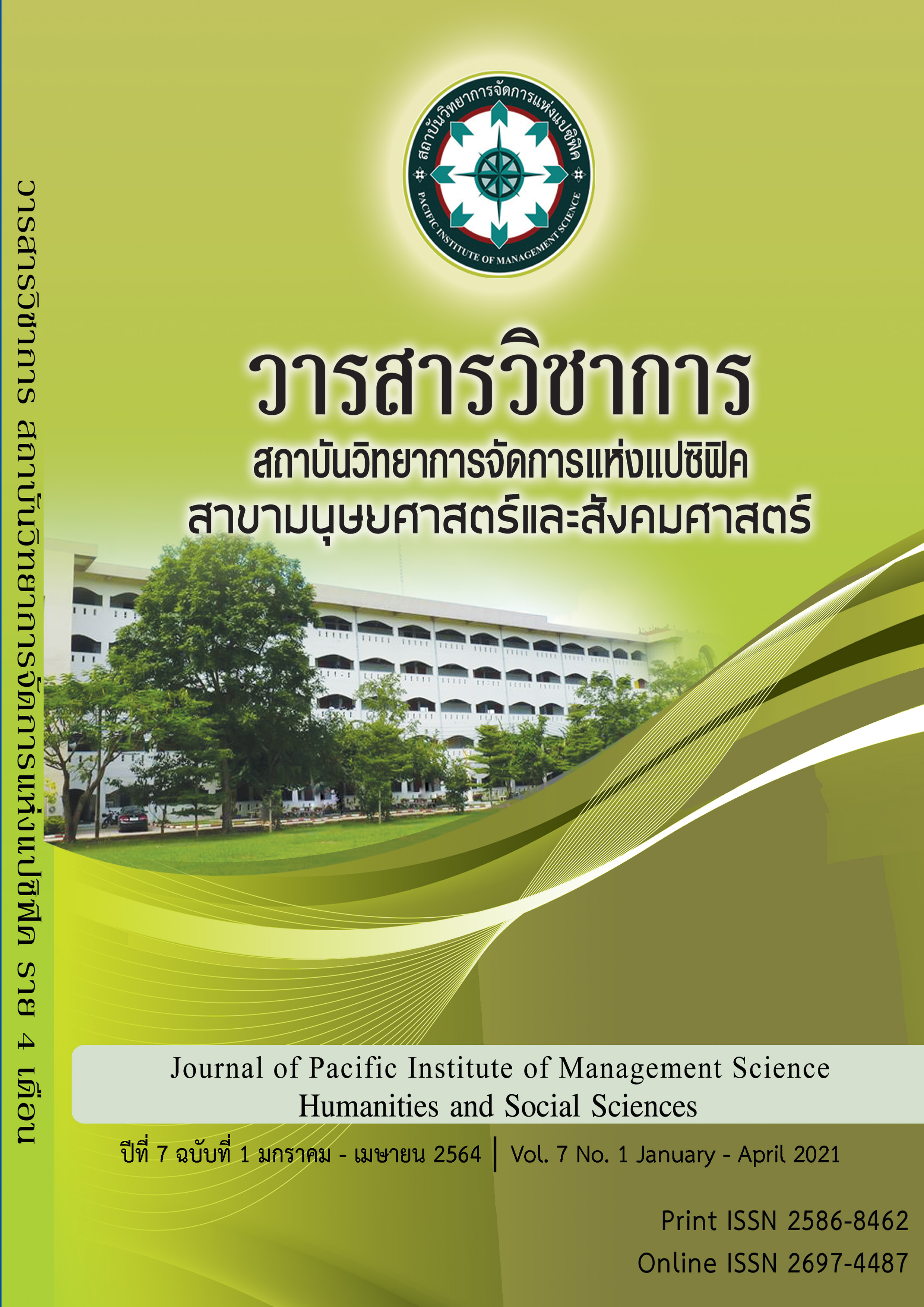Causal Factors for Accounting Management Affecting to Tax Planning of Entreprises in Thailand
Keywords:
Tax management, tax planning, taxation issuesAbstract
The objectives of this research are: 1) To study cause and effect factors that affect the tax planning of entrepreneurs in Thailand. 2) To study the elements of cause and effect factors that will affect the tax planning of entrepreneurs in Thailand. 3) To develop a causal model of tax planning for entrepreneurs in Thailand, it is a mixed method between qualitative research and quantitative research. Purposive sampling is carried out in the sample group, entrepreneurs in a listed company on the Stock Exchange of Thailand. Data were collected from October 2018 to January 2019 using 300 questionnaires. The data were analyzed by Factor analysis to classify indicators and establish the reliability test. The consistency was statistically significant. The statistics used for data analysis were percentage, mean, standard deviation, confirmatory factor analysis and path analysis with LISREL 9.10 program.
The research results were found that
The results of data analysis based on practical conditions of the components and observable variables of causal factors for account management on tax planning influencing of entrepreneurs in Thailand consisted of 1) accounting information technology factor (X1) 2. ) Role of Accounting Executive factor (X2) 3) Corporate Strategy Factor (X3) 4) Account Management Factor (X4) and Measure the effectiveness of tax planning of entrepreneurs. It is suitable and applied as a research framework, management model affecting tax planning of Thai entrepreneurs to develop a causal management model that affects tax planning of Thai entrepreneurs in Thailand
Total number of respondents was 300, and most of them were male, 50 years old or older, divorced, a bachelor's degree or equivalent with 11-15 years of work experience, and they have got an average monthly income of 40,001 - 50,000 baht. There was a high level of opinion on accounting information technology factor (X1) overall. There was a high level of opinion on the role of account executives (X2) overall. The overall level of opinion on account management factors (X4) was high. There was an overall level of opinion on the tax planning factor (Y1) There was a high level of opinion on the tax planning factor (Y1) overall.
Analysis results of observable variables. It is used to study the causal structure relationship in management accounting that affects the tax planning of entrepreneurs in Thailand. It was found that most of the observed variables had a high average level.
The results of the analysis of relationships between observed variables of the causal structure relationship model that determines the correlation that is different from zero or not to determine the relationship of co-component before being analyzed for confirmation elements. By using Pearson's correlation coefficient analysis, it was found that the correlation between all observed variables with a statistically significant difference from zero at 0.05.
The results of the consistency analysis of the causal structure, causal factors in account management models affecting tax planning of entrepreneurs in Thailand with empirical data that is consistent with the empirical data.
References
หทัยกาญจน์ วงศ์เรือง. (2558). ความสามารถของผู้จัดทำบัญชีกองทุนหมู่บ้านและชุมชนเมือง กรณีศึกษา ตำบลบ้านยาง อำเภอวัดโบสถ์ จังหวัดพิษณุโลก. การศึกษาอิสระปริญญา มหาบัณฑิต สาขาการบัญชี บัณฑิตวิทยาลัย มหาวิทยาลัยพิษณุโลก.
Ball, R., Robin, A., and Wu, J. (2003) Incentives versus Standards Properties of Accounting income in four East Asian countries, and implications for acceptance of LAS journal of Accounting & Economics,36(1-3)-pp 235-270.
Chen et al., (2005) A Study of Glass Ceiling and Strategies for Women’s Career Advancement. In Dissertation Abstracts International. Available: http://proquest.umi.com. [2012, May 19].
Erle, (2008) Linking QWL and job performance: implications for organizations. Performance Improvement, 46(6), 30-35.
Frank, M.M., Lynch, L. and Rego, S.O. (2008). Tax Reporting Aggressiveness and Its Relation to Aggressive Financial Reporting. Retrieved December 25, 2010, from http://papers.ssrn.com/sol3/papers.cfm?abstract _id=647604
GERDIN, J. 2005. Management accounting system design in manufacturing departments: an empirical investigation using a multiple contingencies approach. Accounting, Organizations and Society30, 99-126.
Lanis, R., Richardson, G. (2011). The role of attitudes and beliefs in lerning to teach. In J. Sikura (Ed.) Handbook of Research on teacher education. New York: Macmillan.
Minnick, K. and Noga, T. (2010). Do corporate governance characteristics influence tax management? Journal of Corporate Finance, 16, 703-718.
Oliver Hart (1991) A Cognitive Model of the Antecedents and Consequences of Satisfaction Decisions. Journal of Marketing Research. (17): 460-469
Tsakumis, G. T. (2007). The influence of culture on accountants’ application of financial reporting rules. ABACUS Volume43, Issue1 March 2007.
Downloads
Published
Issue
Section
License
บทความที่ได้รับการตีพิมพ์เป็นลิขสิทธิ์ของ สถาบันวิทยาการจัดการแห่งแปซิฟิค
ข้อความที่ปรากฏในบทความแต่ละเรื่องในวารสารวิชาการเล่มนี้เป็นความคิดเห็นส่วนตัวของผู้เขียนแต่ละท่านไม่เกี่ยวข้องกับสถาบันวิทยาการจัดการแห่งแปซิฟิค และคณาจารย์ท่านอื่นๆในสถาบันฯ แต่อย่างใด ความรับผิดชอบองค์ประกอบทั้งหมดของบทความแต่ละเรื่องเป็นของผู้เขียนแต่ละท่าน หากมีความผิดพลาดใดๆ ผู้เขียนแต่ละท่านจะรับผิดชอบบทความของตนเองแต่ผู้เดียว







